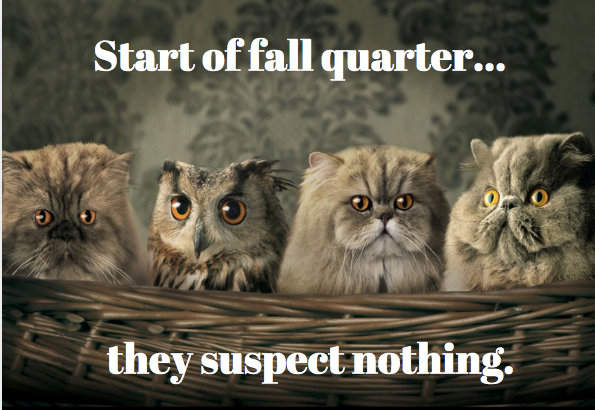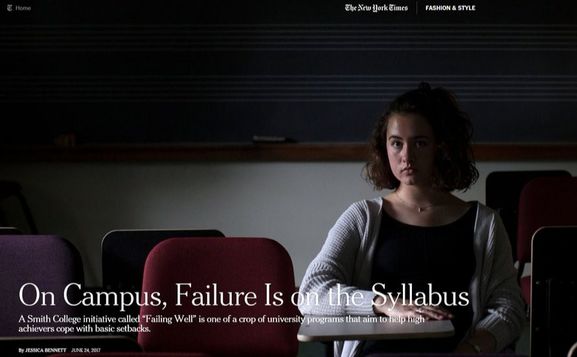Imposter Syndrome |
|
@UCSBMentalHealthPeers TransferExperience: Hoot!...I mean meow…
|
As a transfer college student, you may question whether you belong at UCSB and whether you will "make it". This feeling, known as imposter syndrome, can affect your self-confidence and lead you to feel isolated and alone.
What are the features of IMPOSTER SYNDROME?
|
Learning how to learnNo one learned their ABCs, how to ride a bike, or how to cook a perfect meal in a day. Learning how to do school is the same.
Students often expect that they are going to master the art of schooling right from the start. They expect that they "should" know how to do everything. And with effort, A's will inevitably follow. However, many students find that college is much harder than they expected. They get back lower grades than they anticipated and are quick to see their grade as a reflection of their overall ability ("I'm stupid", "I'm a failure", "I don't belong in college") rather than a reflection of what they need to work on to hone their skills. One of the most important things to remember is that learning and growth requires stretching your current abilities, feeling uncomfortable, and even stumbling a bit. Mastering the subjects that you are studying will take time, energy, and persistence. And building strength in your academic muscles comes from finding out what you don't understand and what skills need some extra attention to develop. Check out this article to shift your thinking from focusing on success vs. failure to focusing on the learning process. This will help you to feel less like an imposter, and recognize that everyone else is in the same boat. |
Some helpful resources for dealing with Imposter Syndrome!
Proudly powered by Weebly





